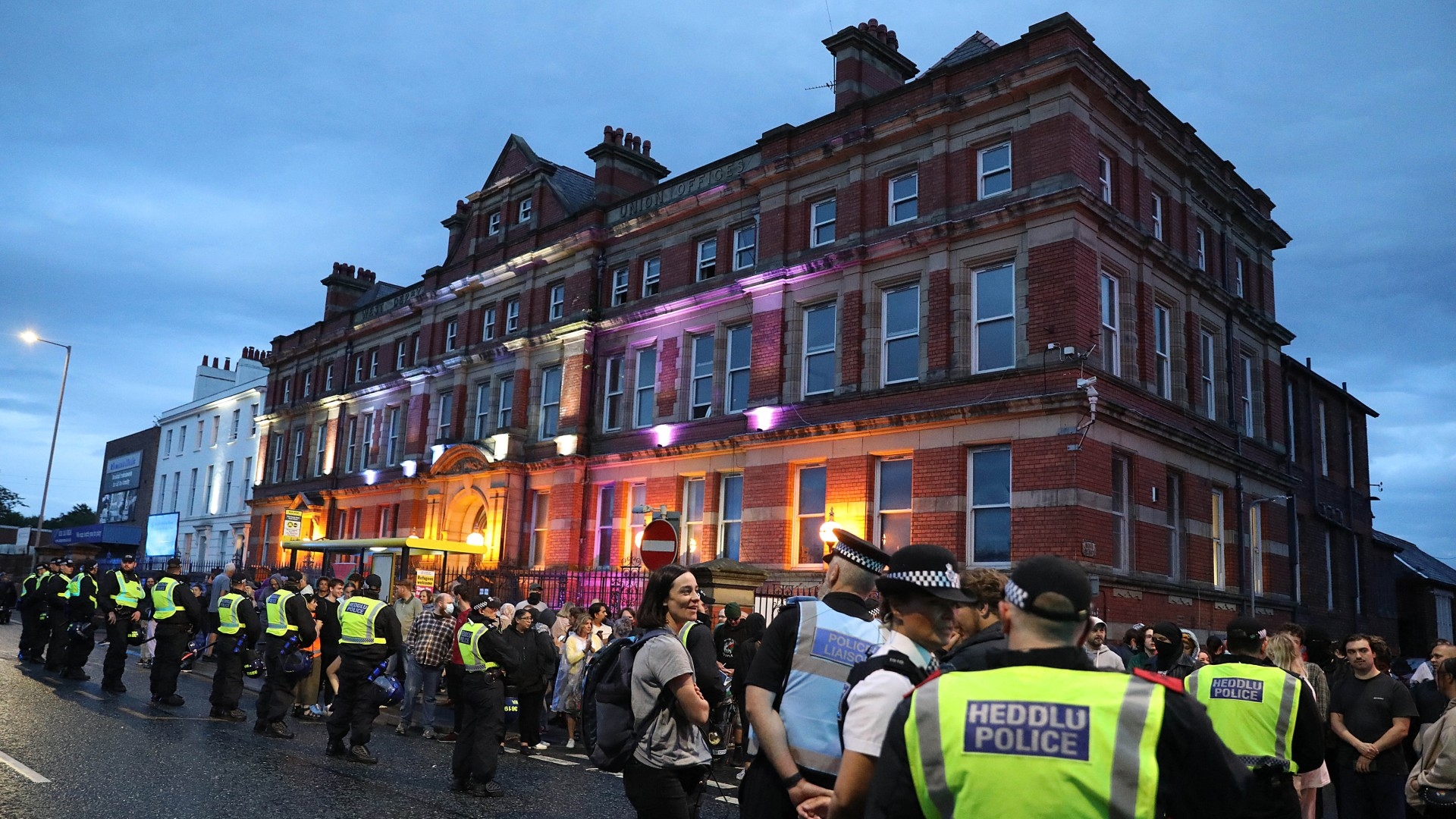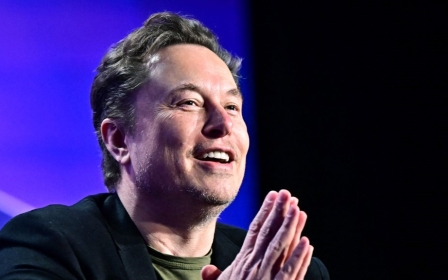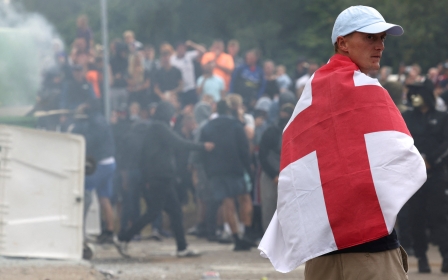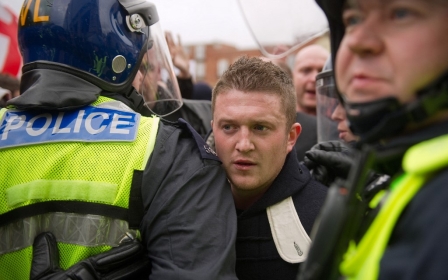UK urged to engage with Muslim groups after Islamophobic rioting

The UK’s Labour government is being called upon to engage with Muslim organisations, after far-right rioting continued to target Muslim communities across Britain.
The rioting, which began last week, continued on Monday night in Belfast, Plymouth and Darlington, the latter of which saw groups of far-right crowds gather in the North Lodge Park area, in the vicinity of a mosque.
Mosques have been targeted for several days now, including in Leeds, Liverpool, Sunderland, Middlesbrough and Hastings.
In Burnley, a police investigation was launched after gravestones in the Muslim section of a cemetery were vandalised.
Nearly 400 people have been arrested since the violent unrest began.
New MEE newsletter: Jerusalem Dispatch
Sign up to get the latest insights and analysis on Israel-Palestine, alongside Turkey Unpacked and other MEE newsletters
On Sunday, UK Home Secretary Yvette Cooper announced that mosques would be offered greater protection through new emergency security that could be rapidly deployed.
“The targeted attacks we have seen on mosques in the last few days have been a total disgrace,” Cooper said in a video address.
“It’s part of criminal thuggery and violence that we have seen in some towns and cities that we simply cannot stand for.
“We cannot tolerate extremism, racism or Islamophobia in our country.”
The increased protective measures were welcomed by the Muslim Council of Britain (MCB), which said it had been in touch with mosques to offer direct support.
On Monday, Labour MP Afzal Khan published a letter to Prime Minister Keir Starmer calling on him to engage with the MCB.
He wrote that with attacks on mosques and “far-right rioters shouting Islamophobic hate”, British Muslims were feeling anxious and unsafe.
He said that on that basis, Labour leaders needed to meet with national Muslim organisations, including the MCB, “to show your unequivocal support for Muslim communities”.
Successive UK governments have mostly refused to engage with the MCB since the last Labour government initially suspended ties in 2009.
That suspension came after the organisation's then-deputy secretary general signed a declaration in support of Palestinians’ right of resistance following Israel's three-week war in Gaza, known as Operation Cast Lead, between December 2008 and January 2009.
Labour restored ties before its defeat in the 2010 general election, and the MCB subsequently held a number of meetings with Liberal Democrat ministers during the Conservative-led coalition government that followed until 2015.
But Conservative Party ministers refused to meet MCB officials between 2010 and 2024.
MEE exclusively revealed last month that Labour was supporting the creation of a new Muslim leadership group intended to become the primary point of engagement between Keir Starmer’s government and Muslim communities in the UK.
'Blatant racism'
Far-right rioting first erupted a week and a half ago, after three children were killed and eight others seriously wounded in a stabbing attack at a Taylor Swift-themed dance class in Southport.
The 17-year-old charged with the murders, Axel Rudakubana, was born to Christian Rwandan parents in Cardiff in 2006 and moved to the village of Banks in Lancashire in 2013.
Violent scenes first broke out in Southport, where the far-right mobilised outside a mosque, appearing to falsely link the killing to Muslims.
Tawhid Islam, trustee for Liverpool Region Mosque Network, told Middle East Eye that the imam of Southport Mosque was inside the place of worship when rioting took place.
“There were three other people in there with him. They had to have armed police who were essentially protecting them and shielding them from what they thought might be perpetrators infiltrating the actual grounds of the mosque and getting inside,” he said. “Thankfully, that did not happen.”
Islam said that “blatant racism” was occurring across the country, and that it needed to be “called out for what it was” by the government.
He said that the Muslim community needed to feel it was being supported “directly and not indirectly”, and that Islamophobic attacks needed to be explicitly pointed out and condemned, rather than labelled as “criminal activity”.
Middle East Eye delivers independent and unrivalled coverage and analysis of the Middle East, North Africa and beyond. To learn more about republishing this content and the associated fees, please fill out this form. More about MEE can be found here.




